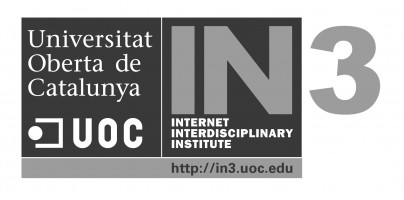Essay Collection: Designing Democracy
How designers and design could improve participation in the democratic process and communication between electors? The essay collection ‘Designing Democracy’ examines this from different perspectives. Francesca Bria, Senior Project Lead in the Nesta Innovation Lab and project coordinator of the D-CENT project, writes about ‘Internet-era citizen movements and political parties’.
‘Designing Democracy’ investigates key questions surrounding democratic engagement, for example the decline in election turnouts and increasing voter apathy. Could design reverse this trend and reinvigorating democratic engagement and improve the experience of voting? How can we use design to help people understand why their vote counts?

Even though we have seen the rise of new network parties, like the Five Star Movement in Italy and Podemos in Spain, attempts to engage people in democratic decision-making using digital platforms are still in their early stages, D-CENT project coordinator Francesca Bria states in her article (pages 41-44).
“A few existing platforms have been specifcally designed to engage in Internet-scale democracy that goes beyond the limits of traditional corporate social media. The European funded project D-CENT (Decentralised Citizens ENgagement Technologies) is bringing together leading European examples of collective deliberation and decision-making, and helping them developing the next generation tools for online democracy”, Bria writes.
“The purpose of democracy in the 21st century should be to harness the collective knowledge of the people to build more inclusive institutions, formulate better policy and laws and solve real social problems empowering citizens. D-CENT wants to provide a positive vision of collective intelligence in democracy, which is a vision of a more inclusive and participatory democracy in the 21st century”, she continues.
The ‘Designing Democracy’ essay collection features articles from leading designers, MPs and policymakers. Other writers include e,g:
- Lord Richard Rogers, Rogers Stirk Harbour and Partners, President of APDIG
- Speaker John Bercow, House of Commons and Chair of the Speaker’s Commission into Digital Democracy
- Jason Prior, AECOM
- Karen Anderson, Architecture and Design Scotland
- Sam Jacob, Sam Jacob Architects
- Hayley Rogers, Good Law Project
- Dan Hill, Future Cities Catapult
- Laura Haynes, Appetite
- Kieran Long, V&A Museum
- Kate Jones, Design Council
- Carole Ann-Davies, Design Commission Wales
- Nick Hurley, The Human Project
- Cassie Robinson and Louise Armstrong, The Civic Bureau and Forum for the Future
- David Klanner-Jausner, Commonplace
The collection is co-Chaired by John Howell MP and Dr. Richard Simmons. It is published by the Policy Connect.
D-CENT is a Europe-wide project creating privacy-aware tools and applications for direct democracy and economic empowerment. Together with the citizens and developers, we are creating a decentralised social networking platform for large-scale collaboration and decision-making.
Follow us:
Website: www.dcentproject.eu
Twitter: @dcentproject
Facebook: facebook.com/dcentproject
Facebook group: facebook.com/groups/dcentproject
Vimeo: vimeo.com/dcentproject
Slideshare: slideshare.net/dcentproject
Linkedin: www.linkedin.com/groups/DCENT-8252379/about
GitHub: github.com/d-cent




















